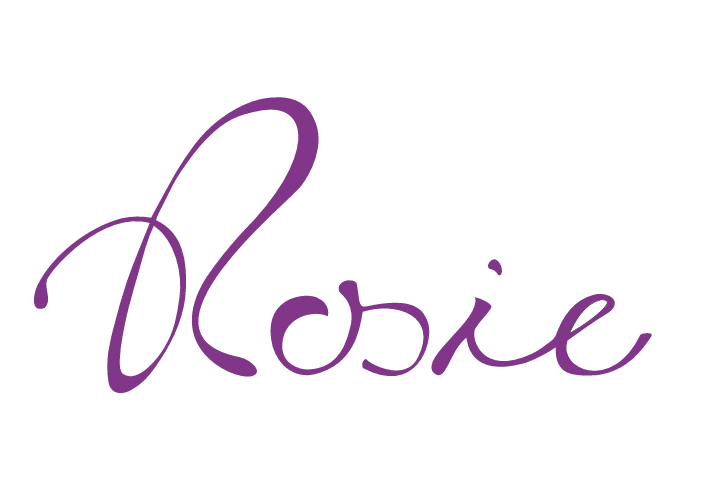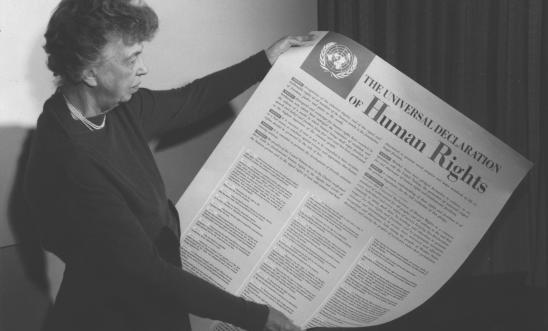Clarified, aspirational boldness and grounded determination are present in the Universal Declaration of Human Rights. Reading it in this week, 70 years since its creation, one is struck by its beauty and dauntless resolve. One feels the tenacious valour and fortitude of Eleanor Roosevelt and the other authors.
Having witnessed and survived horror, Mrs Roosevelt’s group of leaders responded with the responsibility which was partnered with their power. They transformed the abhorrence of the war they had just survived into strength with which to create a document setting out the attitudinal positions and necessary actions to ensure protection and care for human beings against misused power.
Chilean member of the drafting sub-committee, Hernán Santa Cruz, wrote of what he witnessed in this collaborative determination:
“a consensus had been reached as to the supreme value of the human person, a value that did not originate in the decision of a worldly power, but rather in the fact of existing—which gave rise to the inalienable right to live free from want and oppression and to fully develop one’s personality.”
Hernán’s words reveal the soul of that shared work.
Words have power. They both create and flow from thought. They are cognitive symbols representing concepts that exist beyond ‘me’. And yet, when we know and can use a word symbol, it and its concept also become ‘me’.
Seventy years ago Eleanor Roosevelt and her teams set out words to flow from thought into ‘ways of being’ which would create enlarged freedoms and flourishing for all men, women and children. The necessity and determination of the rule of law was understood:
“Whereas it is essential, if man is not to be compelled to have recourse, as a last resort, to rebellion against tyranny and oppression, that human rights should be protected by the rule of law” (preamble).
The necessity and determination of tenderness in fellow feeling was also understood:
“All human beings… should act towards one another in a spirit of brotherhood” (Article 1).
These two, rule of law and spirit of brotherhood, co-create and support each other. They are warp and woof. Woven together they are the base of the social tapestry.
Something essential is missing when high words are used as clubs but do not inspire invitation and hope to step into the best that humans can be for each other. In their little book ‘On Kindness’ Philips and Taylor give it this way:
“We are never as kind as we want to be, but nothing outrages us more than people being unkind to us.”
And ‘kind’ is the right word to introduce here because ‘brotherhood’, the term the UDHR uses, is a symbol of family connection. Of kin. Of kindness. Kindness is love we can speak of openly and share without fear or favour.
It is this element of meaning – kindness – woven all through the resolute words of the UDHR, which Equal Opportunity Tasmania’s Rally for Kindness is seeking to elevate.
Any effort in service of social change is unsustainable and can become unconscionable without kindness. Activist and sociologist, Parker J. Palmer, highlights the need to hold a mid-ground between irrelevant idealism and corrosive cynicism. Holding this tension in activism requires reserves of kindness.
The tenderness of the human heart holds throbbing power to enliven the lofty-yet-grounded language of rights. Though the intent in this language have loft to the stars, without kindness it is not beautiful, nor achievable. Though it be grounded, without kindness it lacks nourishment for growth.
The preamble to the Universal Declaration of Human Rights gives that “a common understanding of these rights and freedoms is of the greatest importance for the full realization of this pledge” [italics mine].
Every individual is needed in the creation of ‘common understanding’. No one is too sophisticated or too lowly for kindness. And no problem is too sophisticated or lowly for it either. Most problems, in fact, arise from not having been benevolently other-minded and responsive from a spirit of brotherhood in the first place. Thus kindness is not a vapid non-answer to world problems, but the life-giving part of all answers.
Hernán Santa Cruz also wrote of his experience on the sub-committee responsible for drafting the UDHR that “there was an atmosphere of genuine solidarity and brotherhood among men and women from all latitudes”.
This is the beauty and power of shared meaning.
He followed with “the like of which I have not seen again in any international setting.”
We need to see it again. And again and again.
Intentionally aiming for kindness at the micro level of daily life is the source of its production and availability at the macro level of society.
Here is the understanding to make common.

